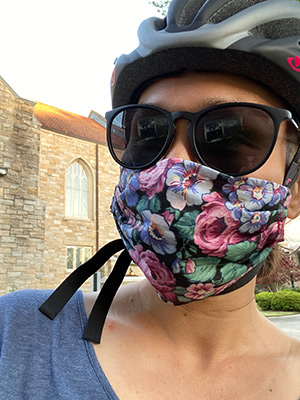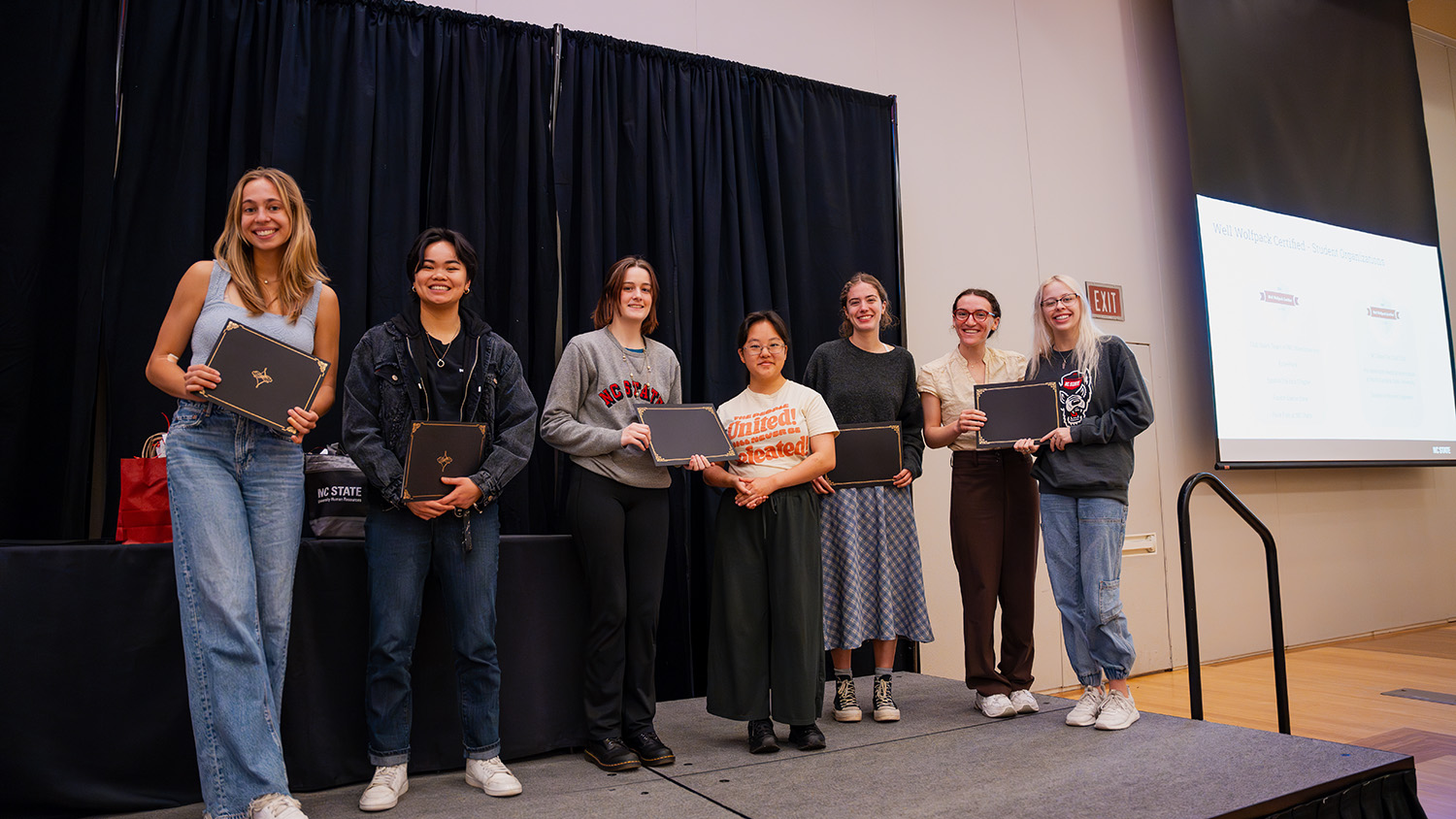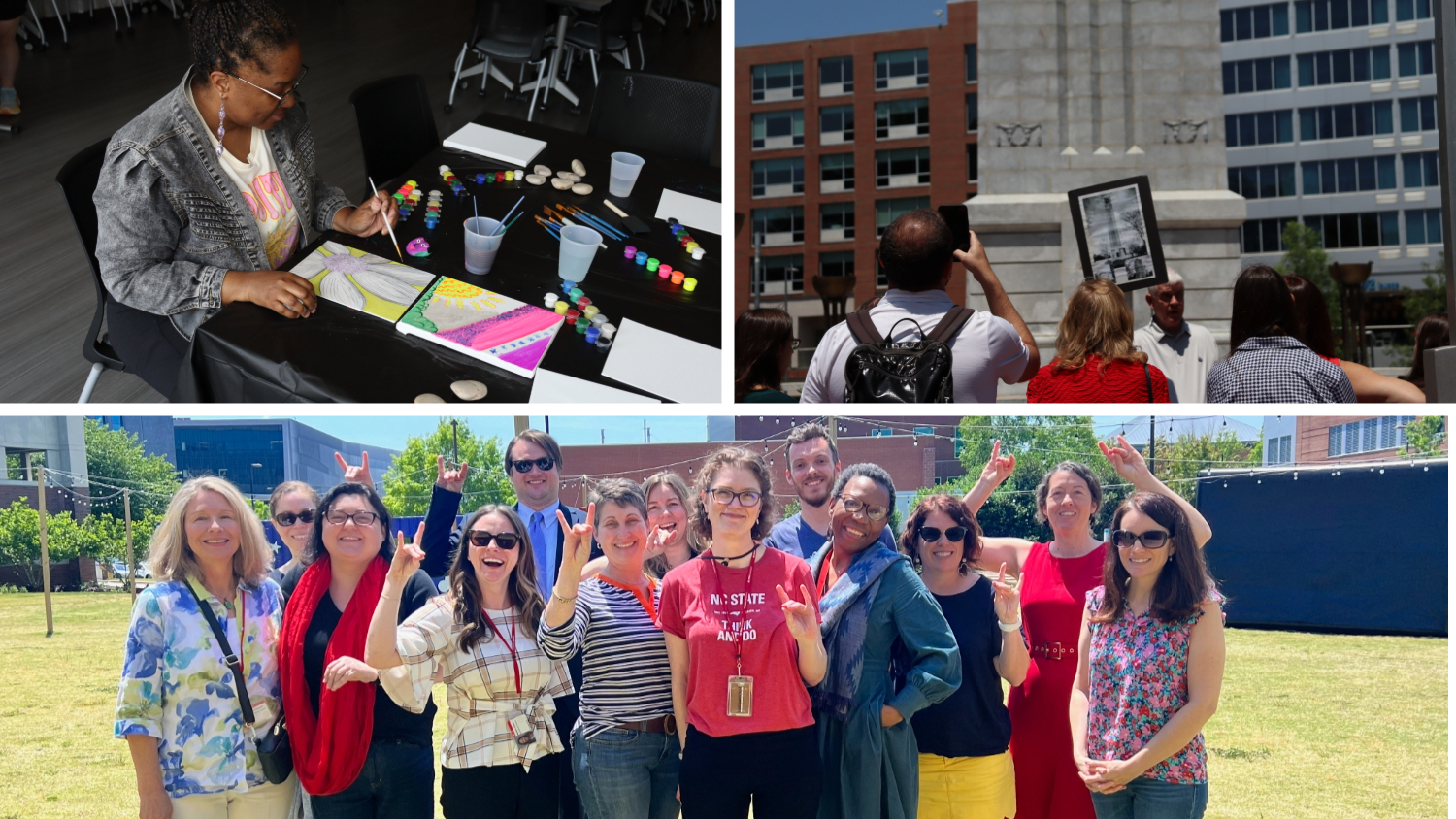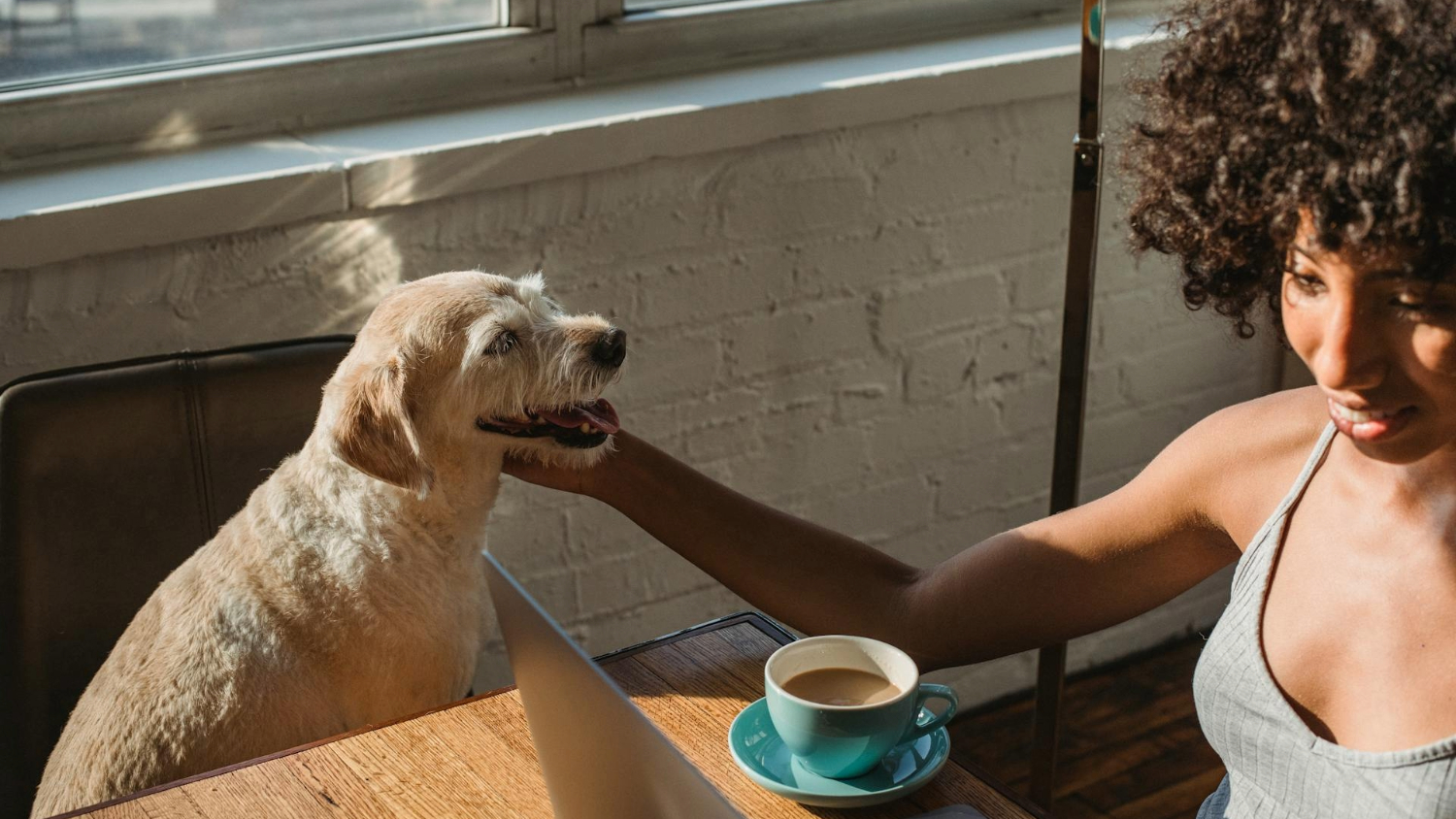When Hannah Rainey took a sewing class last year and bought a used sewing machine, she planned to make sewing a hobby.
For Rainey, the associate head of Research Engagement at NC State University Libraries, the sewing class she took at Craft Habit in Raleigh was a refresher, a way to brush up on a skill she learned long ago.
But what was just supposed to be a leisurely activity for Rainey took on a slightly different purpose last month when she participated in a nationwide effort to make fabric face masks and donate them to health care organizations.
Other employees at NC State have heeded similar requests to make masks and donate them to health care workers and first responders.

The U.S. is faced with a mask shortage as its frontline medical professionals treat an onslaught of patients infected with the novel coronavirus that causes the deadly disease known as COVID-19. In March, the World Health Organization declared the coronavirus outbreak a pandemic. COVID-19 has claimed nearly 300,000 lives worldwide, including an uncounted number of health care workers, since it was detected in December in China.
“So it’s been really nice to put what I’ve learned to good use during this time,” Rainey said. “I think a lot of people want to be helpful. The best way we can all help is staying at home, but it’s really nice to have a way to contribute.”
Face masks are much-wanted items as a result of the pandemic. In April, the Centers for Disease Control and Prevention recommended that all Americans wear face coverings in public places where physical distancing can be hard to maintain, such as grocery stores and pharmacies.
Jo Ellen Westmoreland, assistant director of the NC State Crafts Center, taught people how to make masks from cotton fabric during three classes she hosted via Zoom in April. The sessions are part of the center’s CraftRelief project, an effort organized after the chancellor announced in March that most NC State employees should work from home. The online series of videos and live demonstrations keeps the center’s patrons engaged with its craft classes.
Westmoreland said the demand for masks is what prompted her to research how to make them and offer mask-making classes.
“So, yes, I’m learning as I go along,” she said. “Obviously, none of us thought we’d ever have to make homemade face masks.”
During the sessions — titled “Sew, You’re Stuck at Home” — Westmoreland demonstrated how to make a mask using a sewing machine and scrap fabric. Participants made masks as they followed her instructions and submitted questions via the chat option on Zoom.
Westmoreland said some people joined the sessions to learn how to make masks for themselves. Others joined to learn to make masks to donate.
“I think people didn’t really think that this virus was going to last as long as it looks like it’s going to last now,” Westmoreland said. “So this is something a little different that we’re offering, and we’re trying to provide a service to the community in any way that we can.”
Amy Grubbs, manager of NC State’s Onboarding Center, was inspired to make masks after seeing an online post from the Apex Police Department asking for mask donations for its officers. She said she made about 20 masks for the department using a sewing machine she bought about 20 years ago but rarely uses.
“The officers are essential employees, and they leave their families and go out every day to keep us safe,” Grubbs said. “I thought this was a way I could help keep them safe when they are dealing with the public. They can’t always keep 6 feet of distance from people. Maybe the masks will help them in those times.”
Rainey decided to make masks after getting a call-to-action email from Craft Habit and seeing a post on the store’s Instagram page. The store announced it was distributing kits with enough fabric materials to make 25 masks. It asked interested patrons to pick up a kit, use the instructions included to make masks and donate the masks to the health care organization of their choice.
Rainey donated 22 of her 25 masks to the state prison system’s health care division. She found the prison system listed in a database of organizations in need of masks. Of the three remaining masks, Rainey kept one for herself and gave two to friends.
For patrons unsure where to send masks, Craft Habit directed them to weneedmasks.org, a website keeping a list of health care providers that need mask donations.
Rainey made 18 of the 25 masks over a 10-day period in April. She made the rest during a Zoom call with co-workers on April 16. Some of Rainey’s co-workers also made masks during the video call.
The officers are essential employees, and they leave their families and go out every day to keep us safe. I thought this was a way I could help keep them safe when they are dealing with the public.
The NC State University Libraries Community Service Committee organizes volunteer activities for the libraries’ employees. One of its recurring activities is to gather volunteers to make items such as blankets for ill children, hats for premature babies and paracord survival bracelets. The volunteers donate their handmade items to health care organizations and other groups or agencies in need.
The volunteers usually meet at the Hunt Library in a large common area, where they socialize as they sew and knit. In April, they met via Zoom to adhere to physical distancing guidelines.
Laura Abraham, a library technician at NC State Libraries, was among those who participated in the mask-making session. She said making masks was a good way to channel her energy into a productive project.
“I feel like it’s better than just worrying about everything that’s going on,” she said. “At least I am able to productively do something.”
During the Zoom call, Danica Lewis, a collections and research librarian at D.H. Hill Library, made one mask and cut enough fabric to make 20 more masks. She made the 20 masks over a weekend in April and donated them all to the WakeMed health care system in Raleigh.
“Staying inside and physical distancing can feel really passive,” Lewis said. “It is the most important thing that we can do right now to try and help medical professionals, but I was looking for a more active way to contribute. Making masks was appealing to me. I could sit and focus on sewing for a little while and maybe do a little to help.”
- Categories:



